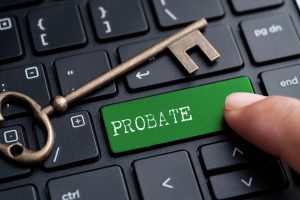 Disputes arise all of the time following the death of a decedent. These matters can take many different forms. If a decedent left a Last Will and Testament issues may exist as to whether the Will is valid. There may be questions as to due execution, testamentary capacity or undue influence. These matters would be examined in the course of a probate proceeding in the Surrogate’s Court.
Disputes arise all of the time following the death of a decedent. These matters can take many different forms. If a decedent left a Last Will and Testament issues may exist as to whether the Will is valid. There may be questions as to due execution, testamentary capacity or undue influence. These matters would be examined in the course of a probate proceeding in the Surrogate’s Court.
In the event a decedent did not have a Will, a proceeding for letters of administration would be initiated to settle the intestate estate. Issues which may arise include the appointment of an administrator. There may be heirs at law who filed competing administration petitions seeking their appointment as administrators. Additionally, the identity of the estate heirs or distributees may be in doubt. In such cases, a determination of kinship and a kinship hearing may be necessary. Determining kinship may be complicated and require the services of a professional genealogist to search for records and lost or unknown heirs. Also, genetic testing may be used to find out if parties are related. The New York Probate Lawyer Blog publishes many articles regarding probate and estate administration. Feel free to review the blog posts and my website for additional helpful information.
In a different context, estate problems can surface where a decedent made certain transfers of assets during life. Although these lifetime transfers have been completed, surviving relatives may claim that the transfers were improper or that the transfers were part of an agreement whereby the transferred property was to be disposed of by the transferee and not kept for his sole benefit. The scenarios in these matters are varied. This is where the concept of a constructive trust arises. It is best described by looking at a recent estate case entitled Versace v. Robinson, decided by Columbia County Supreme Court Justice Richard Mott. In Versace, the litigants’ mother had owned real property. Before her death, the mother transferred the property to the daughter and reserved a life estate. The son asserted that the property was deeded solely to the daughter, and not to both children, to avoid any liens which might arise due to the son’s businesses. The son also asserted that there was an agreement between the parties that when the mother died, the property would be sold and the proceeds paid equally to the son and daughter. Of course, when the mother died, the daughter refused to recognize the son’s interest in the property or the agreement.
 New York Probate Lawyer Blog
New York Probate Lawyer Blog











